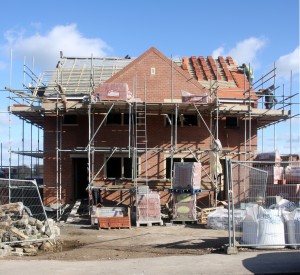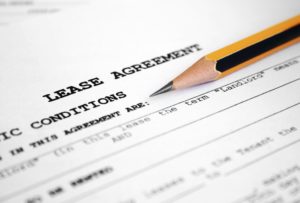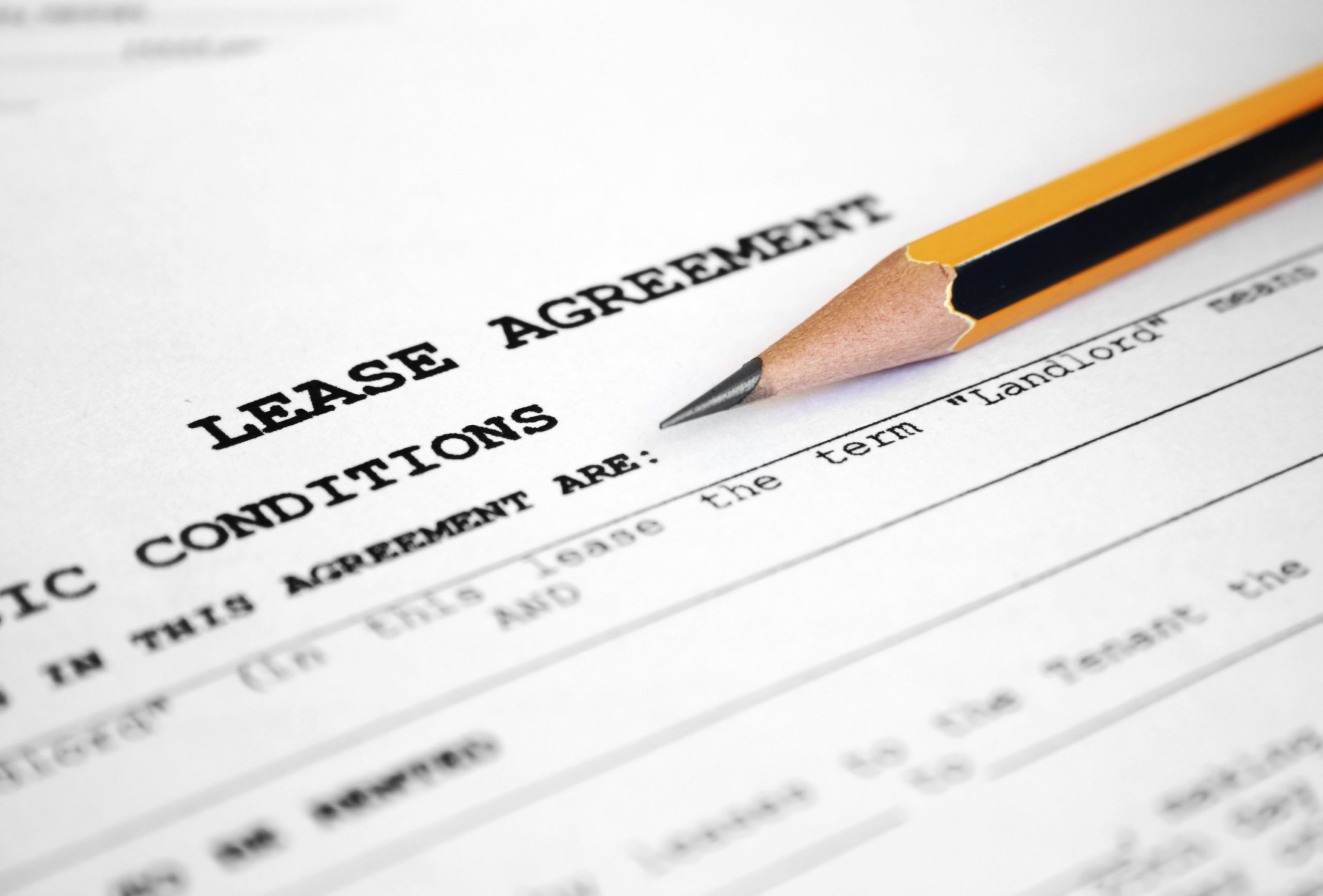The difference between a secured loan and an unsecured loan
You may have come across terms ‘secured’ and ‘unsecured’ when it comes to loans. But what exactly does this mean? In fact, unsecured and secured loans are two very different things and to know the difference between the two is fairly vital before you go ahead and fill out any application forms for a loan of any kind. In this guide, we aim to clear up and confusion and provide clarity on what means if a loan claims to be secured or alternatively, unsecured.
What is a secured loan?

A secured loan is also referred to by some as a homeowner loan. This is because a secured loan has the debt associated with it linked (or ‘secured’) to the loan borrower’s property. Therefore, it becomes obvious that secured loans are only available to be taken out by people who already own or are buying their own homes. A secured loan can be used to borrow anything from the £5,000 mark and upwards.
With a secured loan, the amount you are entitled to borrow, the duration of the loan agreement and the amount of interest which will be offered is wholly dependent on personal circumstances and the amount of free equity which you have in your property.
Essentially, free equity is the difference between the amount you will owe on your mortgage and the actual value of your home.
What is an unsecured loan?
Now we are looking at an unsecured loan. An unsecured personal loan is available to those who have at least a fairly decent credit score. With an unsecured loan, what differs mainly is that you do not have to be a homeowner to obtain it. You can use an unsecured loan to borrow anything which ranges from £1,000 to £25,000. However, keep in mind that they are generally at their cheapest when you are borrowing between £7,500 and £15,000.
To avoid paying more than you should, be sure to always check the terms and conditions for any charges and fees which may not be initially clear, such as an early repayment penalty.
Pros and Cons
Let’s talk about the advantages and disadvantages of both secured and unsecured loans to compare and contrast what is best for you.
Pros of a Secured Loan
- Taking out a secured loan will mean that the repayment period is usually going to be longer. Meanwhile the fixed monthly payments should make it easy for you to manage the repayments as a whole.
- The amount available to borrow for via a secured loan is usually much higher than that of a personal loan, which will only go up to about £25,000 in most cases.
- If you do not have an excellent credit history, you may just find that you actually have little choice but to take out a secured loan over a personal loan. With your property acting as security, you will be seen less as a risk and it will make the loan easier to qualify for.
Cons of a Secured Loan
- With a secured loan, you will need to keep up repayments or risk losing your home as collateral.
- There is the potential to be fees and charges such as early repayment penalties as they could increase the cost of borrowing.
Pros of an Unsecured Loan
- Unsecured loans are more widely available to a larger proportion of people. You do not have to be a homeowner. For example, in the case of online payday loans, you may be a tenant, but still eligible for the loan
- Flexibility is offered in terms of choice as to how long you have to repay the loan – most loan borrowers opt to make fixed repayments for a period of between one to five years.
- You may find that some unsecured loans come with the option of a ‘payment holiday’ which can be about two or three months are the start of your agreements.
- Typically, the best loan rates are for borrowers of an unsecured loan who are looking to repay what they borrowed over three to five years. This means they you will pay a higher interest rate to borrow over a shorter period of time.
Cons of an Unsecured Loan
- The interest charges which are applied to larger or smaller amount can be rather expensive.
- The best deals are only really open to those who obtain the best and highest credit scores.
If you are looking for a quick way to obtain property and do not have time to wait for a mortgage to clear, bridging finance may be the best option for you.
Read more about unsecured and secured loans with this guide from the and-unsecured-borrowing-explained">MoneyAdviceService.
The Insurance You Need For a Building Project
If you are running a building project, having the right insurance is essential to protect you from any potential mishaps. You can never be certain if your property will be victim of a flood, fire or fly tipping and the financial repercussions could put your entire project at risk.
Whether it is for buy-to-let or renovating an existing property, you need proper insurance to safeguard your investment and some bridging loans will not even go ahead until you have insurance in place. We highlight the main types of insurance you may need below.
Buildings Insurance

Buildings insurance comes under the form of home insurance and is used to help protect any damage to physical aspects of the building. This includes covering doors, walls, fences, roofs, ceilings and floors. It is designed to protect you from any accidental or unintended damage to physical fixtures of the property, which could be as a result of fire, flooding, vandalism or other peril.
With builders, plumbers and electricians likely to be working on your project every day and using heavy machinery, you never know when something could go wrong. Whether it is faulty wiring or poor plumbing, it is not uncommon for a fire or flood to occur.
To claim from your home insurance policy, there needs to be proof that any damage caused was a genuine accident. Insurers will always do a full inspection of the property and damage before paying out a claim.
Contents Insurance
Contents insurance also falls under your home insurance so policyholders are likely to have a buildings and contents insurance in one policy. Contents refers to physical valuable items that are in the house or flat. This includes any machines, electronics, art, jewellery and other valuable assets. If the place is a complete building site, then most of the contents will not be on the site. But, if you are working on a property where other people are still living and all their goods are still on the premises, then having contents insurance is key in case anything gets lost, damaged or stolen.
For contents Insurance, it is advised to value all your items that you are leaving in your house like the computer, jewellery and TV and take out a policy to cover their value. It is worth slightly over-insuring so that your insurance provider will pay out enough to replace your items. Insurers will typically only pay out what the goods were worth at the time. So if your TV is 5 years old and has fallen in value, you may not receive enough to replace it - hence taking out a little extra cover can be useful.
Public Liability Insurance
Public liability aims to protect any third parties that come into contact with your building project. When you are renovating a property, you are also potentially impacting people around you including neighbours, passers-by or other tenants of the building.
There are plenty scenarios where public liability insurance can be applied. A common one is if your builders are working on the roof and something like a tile falls off and hits the neighbour’s car or hits a pedestrian walking past. The victim has a right to claim damages because you (or your team) were responsible for this. At this point, you would claim on your public liability insurance in order to settle the victim for any replacements, medical bills or compensation.
Other scenarios include what would happen if your building work accidentally set fire to the neighbour's house? Or what if your boiler broke and then flooded other tenants in the building? This types of damages and repairs could be covered by your insurance.
Business Interruption Insurance
Business interruption refers to any costs that you have to incur due your project being interrupted. Perhaps you are working on a deadline or you will need to refinance due to the project taking longer than expected. Whether it is a fire, flood, snow, fly tipping or squatters on your premises, there are several things that could make your project delayed. After all, we all know that building work can take longer than we expect.
Rather than suffer the financial burden, your business interrupted insurance can contribute to any additional costs you may have whether it is building costs, loss of rent income or extra costs required to repay your loan.
Professional Indemnity Insurance
Professional indemnity or PI, is less for you but more the people that you hire. Any professions such as builders, architects, plumbers and engineers are using their expertise when working on your building. However, if they give you bad advice or carry out their work poorly, it could have a huge impact on the overall success of your project and the bottom line.
As a result, you may decide that you wish to take legal action and request compensation for any loss of income or delays in your project. Your potential settlements will come out of the contractor's professional indemnity insurance. So it is a common thing to ask any professionals that you work with beforehand if they have PI cover.
Employers Liability Insurance
Of all the insurance types mentioned above, employer's liability is the only one which is required by law. This is cover for any employees that are working on your premises. They must be your own staff that you hire because any staff belonging to your contractors must go under their own separate policy. Failing to show proof of employer’s liability insurance upon request or a certificate can lead to a minimum daily fine of £2,500 and further prosecution.
The idea of employer's liability is that you have a duty of care for any of your staff members and are responsible if they have an accident at work. Working on a building site poses risks, especially with different materials and obstacles that could cause injury. If one of your people gets injured at work, you can claim on your policy in order to pay for any medical bills, compensation or time off work.
You are required to have a minimum of £5 million worth of cover by law of which a policy may only be a few hundred pounds to purchase. The only exceptions are if you run a family business, you are not required to purchase employer's liability cover for your own family members. Also, any freelancers, sole traders or consultants are required to insure themselves and this is not your responsibility.
How Much Does Insurance Cost?
The cost of insurance will vary on the size of your overall project. Naturally, the refurbishment of a large property which is being changed into 12 rooms will require more staff, budget and insurance than the renovation of a small 2-bed home.
Whilst insurance can easily start from a few hundred or thousand pounds, it is important to cost up the potential risks and what the cost of any damages will be. Using a good insurance provider will help you better understand any risks and levels of cover that you need and it is important to speak to your partners and contractors to ensure that you are all fully covered to carry out the necessary work.
How Rent Reviews Work
What exactly are rent reviews? If you are renting out a commercial premise such as a restaurant, office, warehouse or shop, the landlord has the right to increase the rent after a certain period of time. As a business owner, you need to be on top of rent reviews to maintain control over your costs.
Perhaps the rent needs to change due to higher running costs, increase in inflation or greater demand in the area. We take a look at how they work, and everything else you need to know about the process.

When are rent reviews held?
Rent reviews will usually occur every five years or less than this, depending upon the lease agreement that is signed between the tenant and landlord. It may very well be the case that for short-term leases there aren’t any rent reviews at all, but to be sure about this it is important to check with your landlord.
How is the new rent price determined?
The new rental price is usually determined by the ‘open market rental value’. What this means is that if the landlord was to put this property on the market at the time of review, what amount would he or she expect to receives given the current rental market in the local area, based on similar agreements made to your lease. Factors that determine the open market rental value may include:
- How the premises are used (for example whether it is being used simply as storage space or as an office space)
- Level of rents in the area
Rent increases are not always based upon the open market rental value, they may instead be linked to the Retail Price Index which is heavily linked to inflation.
Who decides the new rent value?
If it has been decided that upon a rent review there will be an increase, it is most likely that your landlord will be the one to inform you of this decision. However, if you believe that the rent review is unreasonable, it is possible to dispute the rent review.
This is usually passed onto an independent expert who can assess the individual circumstances between landlord and tenant and decide what would be the best possible agreement to come to. There are companies that specialise in rent reviews including property and leisure management companies and solicitors.
If you do disagree with the proposed rent increase, it is extremely important that you put this in writing to the landlord as soon as you possibly can. This is because a large number of leases will stipulate a timeframe within which you can dispute a rent review. If you miss this deadline, it could mean that you will have no other choice but to accept the increase.
Do rent reviews take into account improvements made to the property?
Generally speaking, any improvements that you have made to the premises during the term of the agreement will not be considered in a rent review. However, if you do make any improvements it is vital you keep a complete record in the event that you are accidentally charged as you will likely need to provide proof. Nevertheless, you should bear in mind that if you have asked the landlord specifically to make improvements during this term, this may be factored into a rent review.
Do rent reviews ever lead to a decrease in rental value?
A question that is often brought up when it comes to rental reviews is what happens if the open market rental value has fallen in the area surrounding the premises. Could this lead to a decrease rent?
Unfortunately, it isn’t as straightforward as that, and it would most likely require you to refer back to your lease agreement. This is because many agreements will include an ‘upwards only’ clause. That means that should the open market value decrease, the rent can only ever remain the same as opposed to decreased.
How much notice do I get for a rent increase?
In the UK, the amount of notice you are given about a proposed rent increase is usually three months ahead of time, via a written notice by your landlord. However, do check in your own lease agreement the specifications of this timeframe, as it can differ depending on the contract.
What Adds Value to Your House?
Adding value to a house is essential for the property developers and investors that use our website. Ultimately they are using bridging finance in London and across the UK in order to purchase a property, renovate it or add value to it so that it can be sold for a higher price for profit or rented out to tenants to generate income.
Our guide below explains some of the best ways to add value to a house or block of flats, whether it is a new build or existing property.
Fix structural problems first
There is little point in having an elaborate renovation plan to maximise the value of your home if you haven't fixed any major structural problems that exist. Unfortunately, you may find that these types of repairs will tend to be the most expensive that you will encounter in a renovation project, but they are essential. If you don't sort these beforehand it is likely to put off potential buyers, with any cosmetic improvements becoming completely futile. Things that you should definitely consider fixing include:
- Rising damp
- Unstable chimney stack
- Rotten joists
- Structural cracks
- Any collapsed floors
- Broken roof tiles
Split a house into flats
Did you know that you could add at least 30% to the value of your house by converting the house into flats? This could be particularly lucrative in big cities with high levels of demand, such as London and Bristol. By splitting the house into flats, you can maximise on rental income, and also make the option of renting the property out easier.
Nevertheless, it is important that you verify the demand for flats in the area where you are considering converting the house. There is not much point in splitting the house if flats in the neighbourhood aren't a particularly popular option.
Convert your garage
A very good way of maximising the value of your home involves converting an existing garage into a living area. Many of us these days end up using garages to dump old items rather than for their intended purpose. In fact, a report by RAC revealed that nearly half of garages in the UK (that is nearly five million) aren't being used to park their cars, but rather filled with household items!
If this sounds like you but you are considering selling your home, consider that you could add up to 15% on the existing value through garage conversion. In many cases, converting garages can be easier than with other types of spaces as they can be classed as permitted development, therefore meaning you will not need planning permission. However, don't take this as a given. Check with your local planning authority first so you don't encounter nasty surprises at a later date - which could end up actually reducing the value of your home.
Whilst the garage may not need planning permission, it will be subject to building regulations, which it is vital that you abide too. You can use the local council's building control service who can help make sure that you are complying.
Loft conversion for a new bedroom
Like garage conversions, a loft conversion made into another bedroom could add 15% to the value of your property. This could be even more if you build an ensuite bathroom with it too. Whilst most lofts can be converted, you should check with a builder or architect beforehand to make sure that it is definitely the case with your home. Once this has been confirmed, you should also:
- Familiarise yourself with the different types of conversion that are available to choose from. For example, Mansard conversions more often than not, require planning permission and so you would need to contact your local authority before building. However, it is important to note most loft conversions are considered like garages as permitted developments.
- Roof light conversions tend to be the most cost-effective type of loft conversion. Why? because they tend to require the least structural work, with only one or both slopes of a roof needing to be replaced.
Adding a conservatory
On average, adding a conservatory to your property can add an extra 10% to your home's value. Provided you meet general limits and conditions, most of the time conservatories are considered permitted development. This means a conservatory can be built fairly inexpensively and means that you can end up adding far more value to your property than the costs incurred to build it.
However, it is important that you fully consider the design and layout of your house when planning to build a conservatory. Not all conservatories will add value. If it is poorly conceived it could actually end up devaluing your home.
Add more storage space
It will come as not much of a surprise that storage tends to be a real selling point when it comes to buying a home. How many times have you been put off a place because it seems too small, and you just know you won't be able to fit all your items into it? With that in mind, when selling a property, one of the best things that you can do is make use of the spare space in your home. Consider space for shelves and cupboards in areas such as
- Space above sinks
- Under the stairs space
- Dead space on either side of chimney breasts
- Space in the attic or cellar
- Unused wall space
Create off-street parking
When the cost of parking can be so expensive, it is no wonder that having off street parking can really increase the overall value of your home. Especially in urban areas, where street parking can be difficult to come by. For example, creating one or two parking space alongside a property or in front of it can really increase the property value. In fact, off street parking is so popular with buyers that experts recommend even sacrificing a front garden in order to accommodate one.
What is the Difference Between Freehold and Leasehold?
Whether you are using bridging loans in London or anywhere in the UK, it usually involves purchasing some kind of property and understanding the difference between the freehold and leasehold of the property is key. It greatly affects your rights over a property, and for many makes the difference between taking or leaving a property.
For one, first time buyers who are unaware of the in-and-outs of a leasehold contract can find themselves facing large expenses and regretting their choice down the line. We explore the advantages and disadvantages of freehold and leasehold below.
In Short
Freehold - owns the property, can make changes at their own will, is responsible for maintaining the land, collects lucrative ground rent, could be a proprietor or management company. Common for most homes in the UK (unless shared-ownership).
Leasehold - based on owning a lease agreement for 99 or 999 years. Despite owning a flat or maisonette, you still have to pay ground rent, service charges and ask for permission to add changes or have pets in the estate. Need to pay to extend lease agreement.
What is leasehold?
Leasehold properties and the land they stand on are owned by a landlord, also known as the 'freeholder'. When you buy a leasehold property, you own the property, but only for a defined time period set out with the freeholder. Leases are usually long term and can range from 90 years to as much as 999 years. Some can be as short as 40 years.
When a property’s lease ends the freeholder regains ownership of the property, unless the leaseholder extends the lease, which we will cover in more detail later in this article.
What you need to know about leasehold properties:
The leaseholder and freeholder draw up a contract that explains the legal rights and responsibilities of both parties. This usually includes:
Maintenance terms
The freeholder is usually responsible for maintaining the exterior of the property such as the roof and outside walls. Some leaseholders may request their ‘right to manage’, in order to assume this responsibility instead.
Ground rent
Leaseholders pay a yearly ground rent to the freeholder, which can either be a fixed charge or increases over time. In the past leasehold properties had ground rent fees as low as £10. Alas, today, ground rent fees currently average at £371 a year for a new build property and £327 for properties built prior to 2016, according to Direct Line for Business.
Ground rent fees are not usually a concern amongst new homebuyers. However, some developers of new-build homes have been inserting clauses into leasehold contracts setting the ground rent to andal-engulfing-new-home-buyers-leasehold">double every decade. This meant thousands of cases where the ground rent would soon spiral to extortionate levels. A ground rent of £300 a year could cost £2,400 a year in 30 years, or an astonishing £9.8m after 150 years.
While this may not be an issue for you as a new owner who would like to sell within ten years, these kinds of clauses make it difficult – if not impossible – to sell a property. Buyers are likely to be adverse to scheduled increases, whereas lenders will need to consider these exponentially growing costs into any potential buyer’s mortgage application.
Since this ground rent scandal surfaced and in effort to combat this extortion, the government has proposed a complete ban on new houses sold as leasehold, and to reduce ground rents to zero.
In the meantime, if you fail to pay the ground rent, a landlord could take you to Court to recover the debt. In severe cases, the landlord could attempt to recover possession of the property. They can only do this, however, if the amount outstanding is £350 or more and you have been in arrears for three years or more.
To eliminate your ground rent...
You can abolish your ground rent fees by extending your lease under the Leasehold Reform Act 1993. This is known as ‘peppercorn rent’.
Service charge
Owning a leasehold property also means you need to pay a yearly service charge to the landlord or management company for the general maintenance, insurance and repairs on the property. This can add a hefty amount to your yearly expenses. A third of management companies have increased their service charges over the last two years, increasing the average cost to £1,683 a year.
Service charge typically covers the cost of heating, lifts, lighting and cleaning of common areas. It may also be used to create a fund for larger one-off expenses, such a roof replacement or refurbishing a lift.
Although some older properties command a fixed yearly service charge, most newer leases have a variable service charge, which changes depending on the size of the property and the costs estimated by the freeholder each year.
Permission for building work
Leaseholders need to obtain permission for any major building work on the property – and this can come at a large cost too. Some buyers are charged £100 by the freeholder for a mere response to their letters, and as high as £2,500 for permission to build a conservatory. And that’s on-top of the fees needed to obtain planning permission from the local council!
No pets
This one is dependent on the freeholder. But depending on the contract, leaseholders can face other restrictions, including not owning pets, no smoking or subletting the property. Failing to fulfil the terms of the lease can result in the lease becoming forfeit.
Why is the length of the lease important?
Properties with short leases can be difficult to sell. The longer the lease, the easier it will be to sell the property on.
What is freehold?
Owning the freehold of a property means ownership of the property and land on which it stands with no limit to the period of ownership. Buyers typically go for freehold as it has many benefits, namely avoiding paying thousands to the landlord and having the freedom to initiate building work without delays from the freeholder.
When buying a freehold property, you can benefit from:
- Zero annual ground rent
- Zero service charge
- Zero chance of over-billing on maintenance fees from the freeholder
- No delayed maintenance
- You have responsibility for maintaining the building exterior (roof and outside walls)
- You don’t have to request permission before doing building work
Now that we’ve delved into the unpleasant details of a leasehold contract, freehold sounds like a pretty good deal. Of course, some people still opt to buy their property on leasehold. In that case, to improve your chances of selling the property in the future and to avoid those increasingly high maintenance and garden rent fees, you could buy the freehold of the property.
How to buy the freehold on a leasehold property
As a leaseholder, you may be able to gain freeholder status by buying the property outright. This is called ‘enfranchisement’. Although the process can involve complex legal procedures and may be costly, it can be immensely beneficial to you as a homeowner.
The ability to buy the property outright depends on whether you own a house or flat and it will be important to seek professional advice and assistance. The HomeOwners Alliance is a good source of guidance in this area.
Ways to Avoid a Payday Loan
When applying for most bridging loans, the provider will run a credit check on your account. This involves accessing real-time data on your credit report, giving the lender an insight into other credit products you have applied for, are using and amount of debt that you owe. Whilst having a mortgage and credit card accounts is very normal, having a payday loan is something that may turn the lender off you and decline your application.
These are high-cost examples of short term credit and used by individuals typically in emergency situations. Bridging lenders therefore see individuals using them as a last resort and financially stretched, therefore they should not be taking out a secured loan or an additional mortgage as this could create further debt. Especially for those that live in the residence as the premise of having your home repossessed is certainly a worst case scenario.
If you apply for an unregulated lender like MT Finance or Regentsmead they may not carry out credit checks at all, preferring to assess the value of your property in question and the opportunity. However, affordability also plays a role so being free of debt and payday loans is advisable.
What is a payday loan?
A payday loan is also known as a short-term loan. The cost of borrowing money is usually significantly higher than say, a credit card or increasing the credit on an arranged overdraft due to the interest rates on short-term loans bad credit. These interest rates are so high that even if you are able to pay back the money within the repayment period, it will still cost you considerably more to give back than you asked for. Whilst the eligibility criteria for these loans tend to be less stringent, (for example, if you have been turned down for a credit card as a result of a bad credit score, you still have a good chance of being accepted) and therefore the money is easier to access, these costs can get completely out of control if you end up struggling to pay back this loan. As a result, taking out payday loans should be really be used in emergencies only.
What should I consider before using payday loans?
Taking out a payday loan should be seen as a last resort for most people. Why? as previously mentioned, you can end up in spiralling debt pretty quickly, and you could end up finding your credit score being affected. That is even if you pay the short-term loan back on time!
If you are seriously considering getting a short-term loan and it is for one of the reasons below, we believe that it would probably not be the right solution for you.
These include:
- Using a short-term loan to pay mortgage or rent.
- For household bills
- You intend to use this loan to pay off other debts.
- The money will be used for unnecessary expenditures such as going out, luxury food, or new clothes.
Getting a payday loan may also not be the right decision for you if:
- You have another payday loan outstanding.
- You don't know how you will pay the money back within the repayment schedule.
- You aren't sure where you would be able to find the money to pay back the short-term loan at all.
Alternatives to high cost loans
Using a credit card may be a better alternative to a payday loan and as a longer-term solution. However, be sure to only spend as much as you can afford to repay, otherwise, this can end up a costly affair when it comes to repayments.
Borrowing from family or friends
Your pride may take a hit, and it is most likely that it is an option that you would like to avoid considering. However, it could stop you ending up in considerable debt that you may experience if you took out a payday loan.
If you did decide this alternative set up some ground rules so everyone feels comfortable with the situation. Any borrowing agreement should be put in writing. You should also speak with your family member or friend what would happen in the worst case scenario if you couldn't pay the money back, or were late in doing so, as this could cause arguments in the future. Once you've made an agreement, be sure to also work out a feasible repayment plan.
Agree on an overdraft with your bank
Speaking with your bank over a temporary increase on your overdraft can be a way to get some money without getting into considerable debt. However, make sure that you don't end up in an unplanned overdraft, as you may have to pay high fees for using one.
Can you ask for a pay advance?
If you are in employment and find yourself really struggling to get by before payday, it may be worth asking your employer for an advance on your wages. After all, if you don't ask, you don't get!
Similarly, if you have just started in a new job but are a recipient of benefits, you may be able to ask your Jobcentre Plus adviser for a short-term advance just to tide you over until payday, with the expectation that this will be then paid back through your earnings or benefit payments.
Where else can I get help?
If you need extra support or information about what to do next in your situation, you could contact:
- Money advice service
- Stepchange
- Money for Life
- Citizens Advice Bureau
- andbook.fca.org.uk/handbook/glossary/G3328.html">FCA
What is Help to Buy?
Help to Buy is a government scheme that means you could buy a home with a deposit as low as 5%. Introduced in the March 2013 budget, the scheme was designed to make it easier for people with smaller deposits to get on the property ladder, and for existing homeowners to move house.
How does Help to Buy work?
With a Help to Buy Equity Loan, the Government lends first-time buyers up to 20% of the cost of their newly built home, which means some only need a 5% cash deposit and a 75% mortgage to make up the rest. And, you won’t be charged loan fees on the 20% loan for the first five years of owning your home.
Since the launch of the Help to Buy: equity loan scheme (1 April 2013 to 31 March 2017), 120,864 properties were bought with the support of the scheme, according to official figures. 81% of these sales were to first-time buyers.
There are two fundamentals to the scheme. The first is an Equity Loan scheme, which is open to both first-time buyers and home-movers but is restricted to new-build homes. So, if you’re looking for a modern place to live, a Help to Buy equity loan could be a good way to reduce the deposit you need to save up for. Even if you buy through Help to Buy and have a mortgage for less than the full price of the property, you become the legal owner with 100% title to your home.
So, if you wanted to buy a house for £400,000 with a 5% deposit you would need:
- £20,000 deposit
- £300,000 mortgage loan
- £80,000 loan from the government
Taking advantage of the Help to Buy scheme has two main benefits. Firstly, you only need a 5% deposit. Secondly, as you’re only borrowing 75%, you will be able to acquire better mortgage rates.
Help to Buy: London rates
To reflect the current property prices in London, the government will lend buyers up to 40% of a new-build’s price, rather than the 20% limit that applies outside of London. This means the maximum you can borrow from Help to Buy in England is £120,000, but up to £240,000 for London. There is no minimum amount.
How much do you need to pay?
Help to Buy equity loans are interest-free for the first five years. After this period, you start incurring a monthly interest fee, which starts at 1.75%. This increases yearly by any increase in the Retail Prices Index, plus 1%.
Because your equity loan from the government doesn’t decrease in size (unless you opt for early repayment), over time the cost of the admin fee could become pretty substantial, especially if inflation increases significantly. These fees come in addition to mortgage repayments.
Buyers must repay the equity loan in full after 25 years, or when your mortgage term ends, or when you sell your home – whichever happens first. The repayment is equal to the market value of your loan at the time, rather than the same quantity that you borrowed.
Following the purchase, buyers can also at any time make voluntary part repayments (also known as ‘staircasing’), or even a full repayment, of the Help to Buy assistance at the current market value. The minimum voluntary repayment is 10% of the market value at the time of repayment.
When participating in the Help to Buy scheme, you could either end up paying back more or less than you borrowed. This depends on whether your home increases or decreases in value.
For example, a person might take a 20% equity loan to buy a property worth £400,000 – so the loan is £80,000. However, when they decide to sell, the property’s value has increased to £500,000. The amount needed to repay the loan now jumps to £100,000, 20% of the new value of the home, not the amount first borrowed.
Extra fees
Buyers also need to pay a monthly management fee of £1 per month from the start of the loan until it is repaid. This fee, as well as the interest fees, do not count as repayments to your equity loan, so, unfortunately, do not reduce the amount owed.
To qualify for Help to Buy:
- You need deposit of at least five percent
- The maximum purchase price is £600,000 (though this limit changes for Help to Buy ISAs)
- The property purchased must be your only residence - you cannot rent out your existing home and buy a second home with Help to Buy
- Buyers must take out a first charge mortgage with a qualifying lender.
- Help to Buy buyers outside London must be able to fund up to 80% of their selected property through a conventional mortgage and deposit.
- London Help to Buy buyers must be able to fund 60% of the property through a conventional mortgage and deposit.
- Buyers cannot use the scheme if they require the main mortgage to be more than 4.5 times their household income.
The Local Help to Buy Agent will assess your application to ensure that you are in a position to afford a conventional mortgage for the purchase.
The Help to Buy scheme is available in England only. The Scottish Government, Welsh Government and Northern Ireland Housing Executive run similar schemes – check out their websites to find out more.
Where are Help to Buy homes available?
Help to Buy homes are available from house builders registered to offer Help to Buy homes in England. Registered builders will make it clear in their advertising if Help to Buy homes are available on their development sites.
Your Local Help to Buy Agent can also help you find out more about the availability of Help to Buy homes in your area.
What’s next? There are four main steps to successfully purchasing a property with the Help to Buy scheme. We’ll cover those in detail in another post.
For more detailed tips on buying a property using bridging, read more here.
Money Saving Tips for First-Time Home Owners
Saving on Your Mortgage
- Do your research when it comes to finding a mortgage provider.
As a first-step, make sure you check your credit score. If lenders see you as a risk, they will charge you more to account for that risk. Look into getting your credit ratings up before taking out a mortgage. Secondly, take the time to contact a number of lenders; do not just go for the first provider you stumble across. Mortgage deals vary enormously and you could end up losing out on a great deal. Utilize mortgage comparison sites, with a particular eye on their administrative fees.
- Overpay on your monthly payments while interest is low.
If your dealer allows you to overpay on monthly payments, then go ahead whilst you can. There is a potential to save a fair amount by paying more when interest rates are low, such that you have less to pay back when interest rates rise. After all, the longer you take to pay back your mortgage, the more interest you wind up paying. Bear in mind that the larger you pay out on your initial deposit, the lower your interest will be when you come to putting out those monthly installments as the total amount you have to pay back will be lower.
- Get off Standard Variable Rate
After your introductory rate, your mortgage provider will likely put you on the (usually expensive) Standard Variable Rate (SVA) if you fail to ask for a special rate. Be vocal with your provider, and make sure you scout out the alternatives that are on offer.
Saving on Utilities
- Switch service providers
If you have a current service provider from previous accommodation, research the market for better deals. Don’t stick with an expensive provider merely out of convenience. The market is always changing, so looking to switch every three years or so is good practice. If you are looking for a provider first-time thorough research is equally necessary, and you should be aware that switching later down the line will likely do your bank account some good in the long-term.
- Save on electricity
Simple tricks such as turning down the heating and using energy-saving light bulbs will make your home more energy efficient and thus cost effective. Ensure that window and floorboard draughts are fixed-up, and that your home is well insulated.
- Save on water
Firstly, make sure there is a fully-functioning boiler in your new place. The maintenance costs of a bad boiler can be astonishing, oftentimes surpassing the cost of replacing one altogether. If your new home has a water meter, the most obvious way to save is to be mindful of your water usage. This is important not only for costs, but for environmental factors also.
Saving on Your Interior
- Buy online
Sourcing your interior features online allows you to very easily and quickly compare the prices of items using the web, and also offers you reviews on the quality of the items you’re interested in. If you prefer to see items in person, look them up before you go instore to evaluate what else is out there and at what price.
- Buy Second-Hand
Marketplaces such as gumtree and eBay are great for finding cheap items to furnish your first home. Ask a seller if you can view their item before buying to ensure that it is in good condition. You can save on delivery costs by picking up items yourself.
- Do your own DIY
If you are up to it, avoid wasting money on hiring in painters and decorators to fix up your place. DIY is far cheaper, and it can also be fun! If you are less confident in this area, see if you can get a friend or family-member to help you with the process. For more specialized jobs, make sure you get multiple quotes before going with a decorating service to be sure as to how much the job should really cost.
Budgeting
A final, and vital way to make sure you don’t overspend during your first move is to budget efficiently. Keep track of your spending by keeping and logging receipts and payments so that you can easily visualize how much money is leaving your account and where it is ending up. Whether you log this on a spreadsheet, in an expenses diary, or in an app, budgeting can save you from losing track of your earnings. Be aware of the potential hidden costs that accompany home-ownership.
By researching the mortgage deals that are on offer; staying vigilant with your energy usage; avoiding impulse-buying and keeping organized with your spending; you have the potentiality to save plenty of money on your first move.
Even if you are a seasoned pro and looking for development finance for your fifth project, a lot of these good tips apply and can help you save money and get the best rates for all your utilities.






